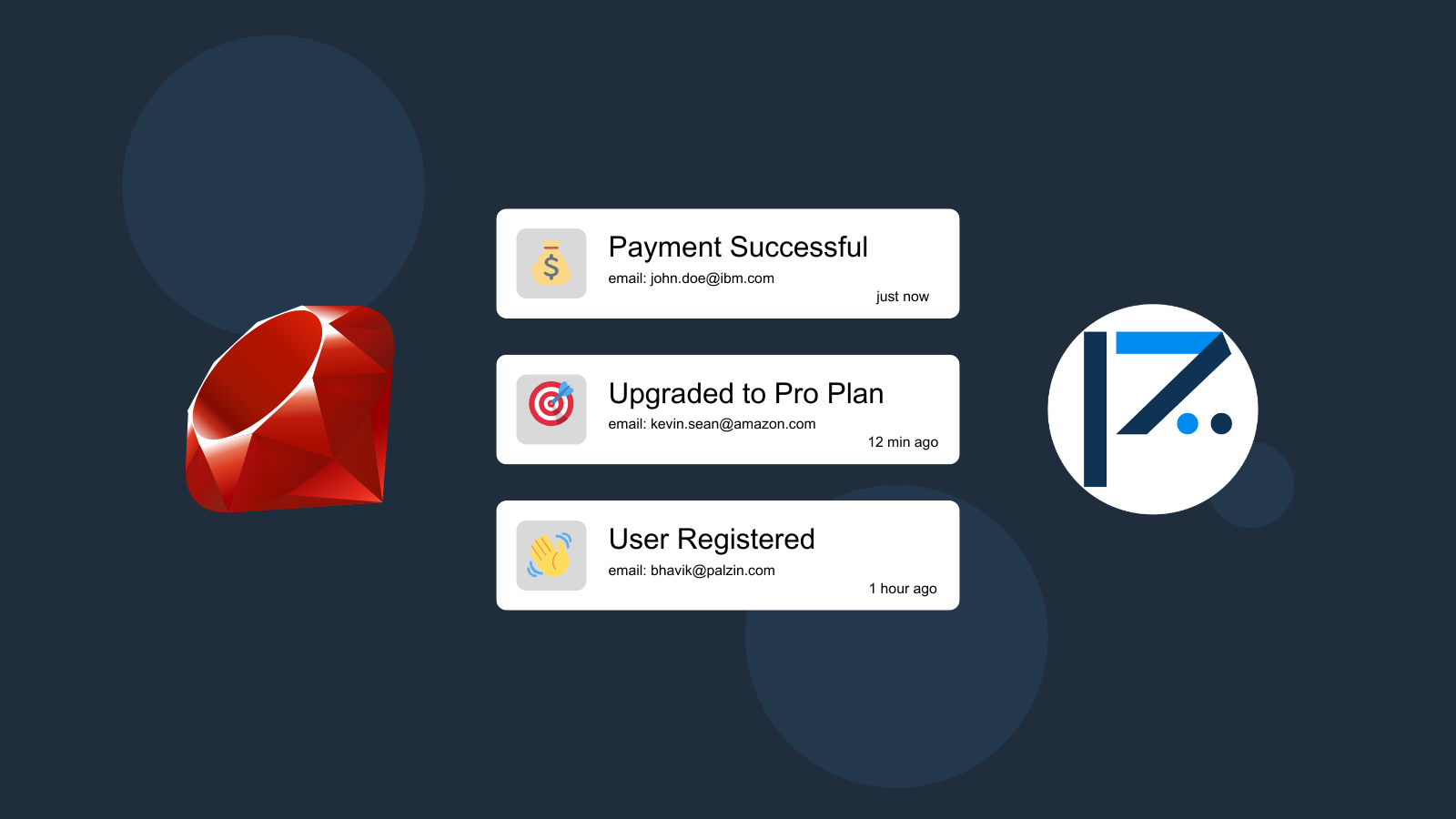
In the realm of software development, the necessity to monitor and receive real-time notifications for critical events is paramount. Palzin Track offers a straightforward solution for event tracking and instant notifications, accessible across multiple devices, including Desktop, Phone, and SmartWatch.
Our API simplifies the process of seamlessly integrating Palzin Track into your Ruby codebase. With just an HTTP request and the inclusion of any supplementary information you desire, we handle the rest, ensuring a hassle-free setup.
Getting Palzin Track up and running within your Ruby project is a breeze. You can easily incorporate our provided code snippets without the need for custom modules, streamlining the integration process.
Send notifications using Ruby and Net::HTTP
require "uri"
require "json"
require "net/http"
url = URI("https://api.palzin.live/v1/log")
https = Net::HTTP.new(url.host, url.port)
https.use_ssl = true
request = Net::HTTP::Post.new(url)
request\["Content-Type"\] = "application/json"
request\["Authorization"\] = "Bearer YOUR_API_TOKEN"
request.body = JSON.dump({
"project": "my-project",
"channel": "waitlist",
"event": "Waitlist Member",
"description": "email: [email protected]",
"icon": "🔥",
"notify": true
})
response = https.request(request)
puts response.read_body
Once an event is published, you get instant updates in real-time, and you could optionally turn on or off push notifications depending on the priority of your event.
Also, Palzin Track makes it very easy to organize your events into different projects and channels depending on their topic and provides you with a global and project-wide feed so you can scroll through your events.
In addition, with our collaborative features, you can add team members to a project so that everyone can receive push notifications and updates, regardless of the desktop or mobile platform they are using.
You can learn more about our API by heading to docs.palzin.live
Palzin Track reveals the human stories behind your data. Make user-centric decisions that drive growth.